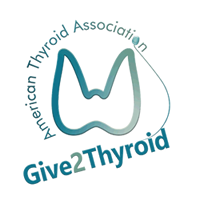These patients were assigned at random to methimazole, 10 or 20 mg depending on thyroid hormone level, with either selenium 300 mg daily or placebo. Patients were examined by one investigator who was not aware of the assignments. Selenium was continued until week 24, when it was discontinued. Methimazole doses were evaluated and adjusted at weeks 4,12 and 24. Labs were drawn at weeks 4, 12 and 24. There were 35 patients in each group. As it is with thyroid disease, more than 75% of participants in each group were women, and both groups were similar in regards to other characteristics such as height, weight, smoking status or other autoimmune conditions.
At week 24, a total of 25 of 31 selenium-treated patients (80%) and 27 of 33 placebo-treated patients (82%) had normal thyroid hormone levels. At week 36, 11 of 23 selenium- treated patients (48%) and 12 of 27 placebo-treated patients (44%) had relapses of hyperthyroidism. The selenium level was not associated with response or relapse rate. Higher antibody levels at baseline were associated with a lower likelihood of response.
The conclusion of the study was that selenium supplementation did not improve the response rate to methimazole therapy in patients with Graves’ hyperthyroidism.
WHAT ARE THE IMPLICATIONS OF THIS STUDY?
The strength of this study is its design: randomized, placebo-controlled, and well balanced treatment groups. The weakness is the relative short duration, as prior studies have suggested 12-18 months to maximize the rates of remission. The baseline selenium level did not indicate that these patients were deficient, unlike the patients in the Croatian study, who were selenium-deficient.
Since the US population is not considered to be seleniumdeficient, based on current data, selenium supplementation is not likely to improve response to methimazole or increase the rate of remission in patients with Graves’ disease.
— Jessie Block-Galarza, MD




